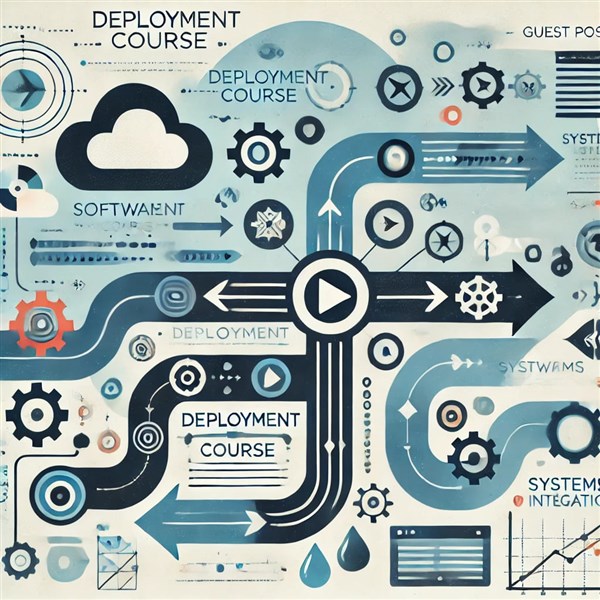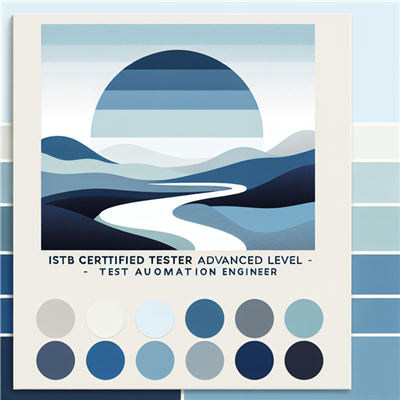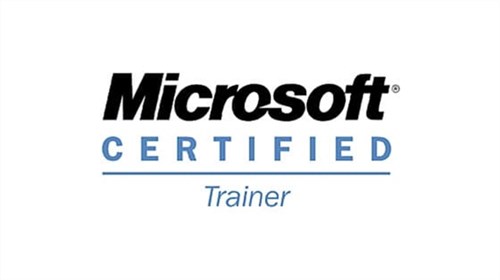
With the rise of agile methodologies, DevOps practices, and continuous integration and delivery (CI/CD), the demand for deployment skills is growing rapidly. A deployment course equips professionals with the expertise to manage and streamline the release process, ensuring that applications and services are deployed smoothly across development, testing, and production environments. Completing a deployment course can open doors to several promising career paths, especially within DevOps, software engineering, and IT operations.
In this blog, we’ll explore the key career paths for professionals who have completed a deployment course, including roles like Deployment Engineer, DevOps Engineer, and Release Manager, and how these roles fit into today’s tech landscape.
Career Paths After Completing a Deployment Course
1. Deployment Engineer
Role Overview:
A Deployment Engineer is responsible for managing and executing the deployment process within a software development lifecycle. They play a crucial role in ensuring that applications are released seamlessly into production environments without causing disruptions. This role involves setting up and managing deployment pipelines, automating processes, monitoring releases, and troubleshooting issues when they arise.
Key Responsibilities:
- Setting up CI/CD pipelines and deploying applications across different environments (e.g., staging, production).
- Collaborating with development and operations teams to ensure smooth deployments.
- Monitoring deployment processes and resolving issues in real-time.
- Automating repetitive deployment tasks to improve efficiency.
Skills Required:
- Proficiency in CI/CD tools like Jenkins, GitLab CI, or CircleCI.
- Knowledge of containerization and orchestration tools (Docker, Kubernetes).
- Familiarity with deployment strategies, such as blue-green deployment, rolling updates, and canary releases.
- Strong troubleshooting and problem-solving abilities.
Career Potential:
Deployment Engineers are highly sought after, especially in organizations that rely on frequent updates or continuous delivery models. With experience, Deployment Engineers can progress to roles like Senior Deployment Engineer, DevOps Engineer, or Release Manager.
2. DevOps Engineer
Role Overview:
DevOps Engineers are responsible for bridging the gap between development and operations teams, facilitating a collaborative environment where continuous integration and deployment can occur seamlessly. They focus on automation, infrastructure as code, and efficient workflows to speed up the software development lifecycle while maintaining reliability and security.
Key Responsibilities:
- Implementing and managing CI/CD pipelines to automate build, test, and deployment processes.
- Developing and maintaining infrastructure using Infrastructure as Code (IaC) tools like Terraform and Ansible.
- Monitoring systems and applications to ensure high availability and rapid troubleshooting.
- Collaborating with developers to improve code efficiency, performance, and security.
Skills Required:
- Advanced knowledge of CI/CD tools, version control (Git), and container orchestration (Kubernetes).
- Proficiency in scripting languages like Bash, Python, or PowerShell.
- Familiarity with cloud platforms (AWS, Azure, Google Cloud) and IaC tools.
- Strong understanding of networking, security, and infrastructure management.
Career Potential:
DevOps Engineers are in high demand as companies shift to cloud-native and continuous delivery models. With experience, DevOps Engineers can advance to Senior DevOps Engineer or Site Reliability Engineer (SRE) roles. Some may also take on leadership roles, such as DevOps Manager or Head of DevOps, guiding strategic initiatives for deployment and operations.
3. Release Manager
Role Overview:
A Release Manager oversees the entire software release process, ensuring that code transitions from development to production smoothly and on schedule. They coordinate with various teams, manage timelines, and address potential bottlenecks, ensuring that each deployment meets quality and reliability standards. Release Managers play a key role in planning releases, prioritizing tasks, and mitigating risks that could impact production systems.
Key Responsibilities:
- Planning and coordinating release schedules, aligning with project milestones and business requirements.
- Managing the release calendar and coordinating with cross-functional teams.
- Monitoring release progress, addressing issues, and providing updates to stakeholders.
- Ensuring adherence to compliance, security, and quality standards during the release process.
Skills Required:
- Excellent project management and organizational skills.
- Familiarity with deployment tools, release management software, and CI/CD workflows.
- Strong communication skills for effective collaboration across teams.
- Knowledge of quality assurance and testing processes.
Career Potential:
Release Managers are critical in organizations that rely on complex software environments and frequent releases. They often move into senior project management or program management roles or transition to product management if they desire a broader focus. Some also move laterally into DevOps management roles if they have a strong technical background.
4. Site Reliability Engineer (SRE)
Role Overview:
Site Reliability Engineers (SREs) are responsible for ensuring the reliability, availability, and performance of software applications and infrastructure. SREs use a combination of software engineering and operational skills to build scalable systems, set performance benchmarks, and automate repetitive tasks. Although SREs typically have a broader scope than deployment-focused roles, deployment skills are essential for effective release management and automation.
Key Responsibilities:
- Designing and maintaining scalable infrastructure with a focus on reliability.
- Automating routine tasks to reduce operational workload and prevent human error.
- Monitoring system health and responding to incidents and performance issues.
- Collaborating with development teams to improve code quality and performance.
Skills Required:
- Strong coding skills in languages like Python, Go, or Java.
- Proficiency in CI/CD and monitoring tools.
- Familiarity with cloud platforms and Infrastructure as Code (IaC).
- Strong analytical and troubleshooting skills.
Career Potential:
SREs are highly valued in organizations that rely on large-scale, high-availability applications. With experience, SREs can move into senior engineering roles or technical lead positions, often overseeing teams of engineers or entire reliability departments.
5. Cloud Engineer
Role Overview:
Cloud Engineers are responsible for designing, implementing, and managing cloud-based infrastructure and applications. They work closely with DevOps and deployment teams to ensure that applications are deployed, maintained, and optimized within cloud environments. For Cloud Engineers, deployment skills are essential in ensuring that applications run smoothly on cloud platforms.
Key Responsibilities:
- Designing cloud architecture to support application deployment and scaling.
- Setting up automated deployment pipelines in cloud environments.
- Monitoring and optimizing cloud infrastructure to maintain cost efficiency and performance.
- Implementing security and compliance protocols for cloud deployments.
Skills Required:
- Proficiency in cloud platforms (AWS, Azure, Google Cloud).
- Knowledge of cloud-native deployment tools, such as Kubernetes, Helm, and Docker.
- Experience with CI/CD tools and Infrastructure as Code.
- Understanding of cloud security and best practices.
Career Potential:
Cloud Engineers are critical in organizations undergoing cloud transformations. With experience, Cloud Engineers can progress to Cloud Architect roles, where they design large-scale cloud solutions, or move into Cloud Security Specialist roles to focus on securing cloud environments.
6. Automation Engineer
Role Overview:
Automation Engineers focus on automating repetitive processes to streamline workflows and improve efficiency. They work with deployment teams to automate deployment tasks, enabling faster and more reliable software releases. Automation Engineers are essential in DevOps and CI/CD environments, where the focus is on continuous improvement and rapid delivery.
Key Responsibilities:
- Developing automation scripts and tools for deployment and configuration management.
- Implementing CI/CD workflows to streamline build, test, and deployment processes.
- Troubleshooting and optimizing automated tasks.
- Ensuring scalability and resilience in automated workflows.
Skills Required:
- Strong scripting and programming skills in languages like Python, Bash, or Ruby.
- Familiarity with automation tools like Ansible, Puppet, and Chef.
- Knowledge of CI/CD systems and version control.
- Problem-solving skills and attention to detail.
Career Potential:
Automation Engineers are essential in DevOps-driven organizations and can advance to roles such as Senior Automation Engineer, DevOps Engineer, or Infrastructure Engineer, where they can contribute to larger infrastructure automation initiatives.
Conclusion
A deployment course can be a gateway to a variety of high-demand, rewarding career paths. From the technical responsibilities of a Deployment Engineer or Cloud Engineer to the strategic oversight of a Release Manager, professionals with deployment skills play a vital role in modern software development. Whether you’re looking to become a DevOps Engineer, pursue a role in cloud management, or advance into project and release management, the skills gained from deployment training will be invaluable.
As organizations increasingly prioritize agile development, cloud computing, and automated processes, individuals with expertise in deployment will continue to find growing opportunities for career growth and advancement. Pursuing a deployment course could be the step that helps you enter these in-demand fields, shape your future in tech, and contribute to innovative software solutions.Bottom of Form
Koenig Solutions is a leading IT training company providing top-notch technology courses and certifications. With a focus on practical learning, quality training, and industry-recognized certifications, Koenig offers an array of deployment certification training courses.
Whether you're a beginner aiming to kickstart your career in IT or a seasoned professional looking to upskill, Koenig offers training courses tailored to your needs. So why wait? Boost your career with a deployment certification from Koenig Solutions today!
In conclusion, a deployment certification can open up a world of opportunities in the IT industry. It equips you with the skills necessary to manage and control IT environments efficiently. By opting for a deployment course, you can unlock exciting career paths and take your IT career to new heights.







COMMENT